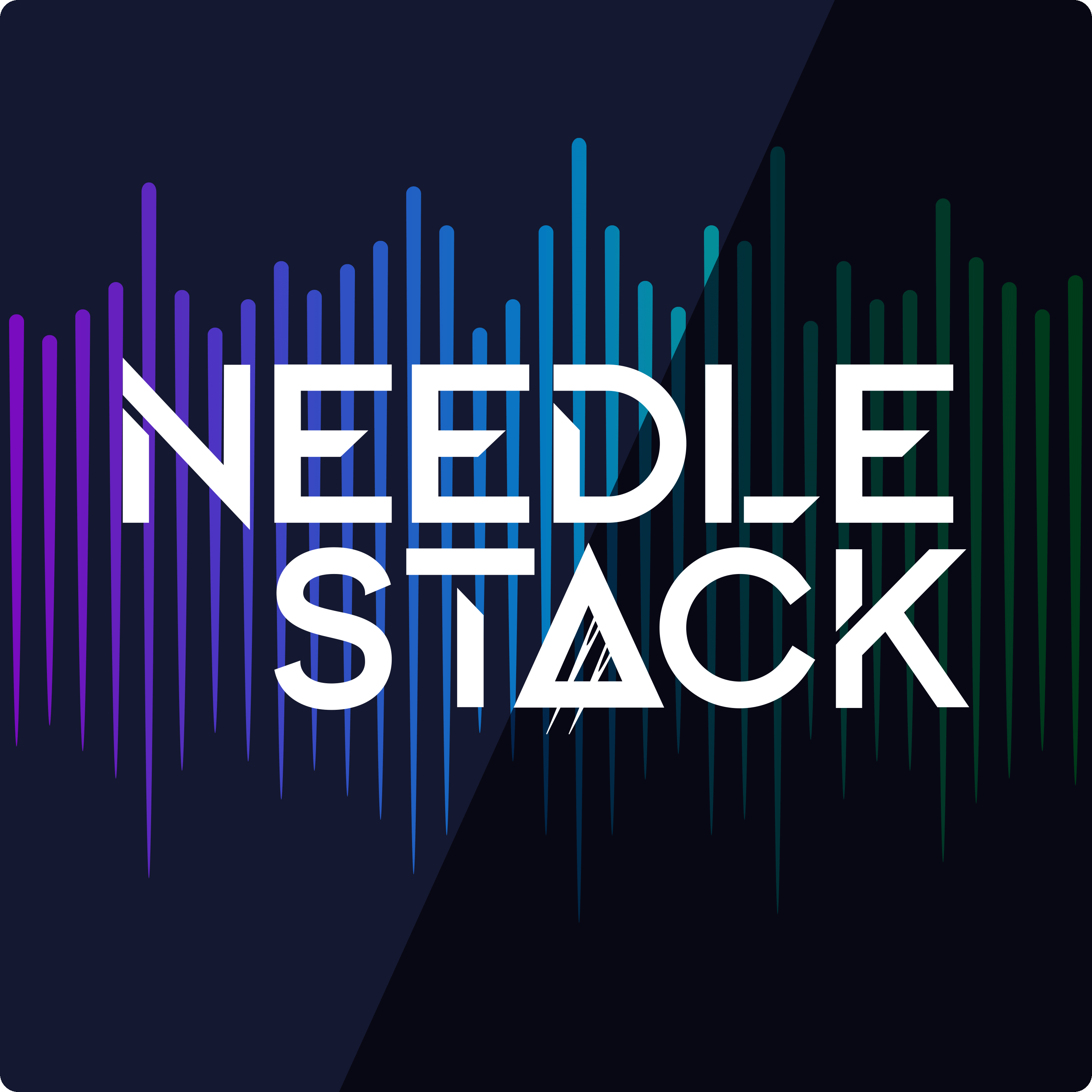

NeedleStack
Authentic8
NeedleStack co-hosts interview professional open-source researchers who discuss tips, tricks and insights into the practice of digital investigative research. Whether you’re an open-source expert or aficionado, tune in to learn how to hone your skills, improve your craft and protect yourself as you search the surface, deep and dark web.
From Authentic8, creators of Silo for Research. Visit authentic8.com/needlestack to learn more!
From Authentic8, creators of Silo for Research. Visit authentic8.com/needlestack to learn more!
Episodes
Mentioned books

Dec 13, 2022 • 23min
Book club: This Is How They Tell Me The World Ends
Our second book club episode features essential reading for threat intelligence. New York Times reporter, Nicole Perloth, gives a history of the zero-day market and how it has changed the cyber weapons arms race. Learn how this market was created and what it means for future cyber defense.

Dec 6, 2022 • 28min
Book club: We Are Bellingcat
This special edition of NeedleStack features a must-read for open-source researchers, We Are Bellingcat by Eliot Higgins. Our producer Shannon discusses what she learned from the founder of Bellingcat’s tell-all and how researchers can learn from the organization’s practices.

Nov 15, 2022 • 25min
Practical OSINT tips from the field
In this episode, an expert OSINT practitioner from both government and private sector practices joins to share hands-on tips from in the field. He also shares what the students of Center for Intelligence and Research and Training are learning from their real-world client experiences.

Nov 8, 2022 • 24min
Subverting censorship through tech
Authoritarian regimes create propaganda and disinformation, in part, by blocking citizens’ access to traditional news sources. In this episode, co-founder of Samizdat Online, Yevgeny Simkin, walks us through how their program works in partnership with outlets to syndicate articles to bypass censorship in Russia and other countries — to get citizens and researchers the information they need.

Oct 18, 2022 • 26min
How to perform a fact-check: from start to finish
Nick Hardinges from the Reuters fact-checking team joins the podcast to walk us through how to go about debunking information online, from deciding what’s worth covering to why grainy images should make you skeptical. Ultimately, fact-checking takes time, persistence and a healthy dose of intrigue. Key takeawaysKnow these telltale signs of doctored contentCheck your sourcesDo some digging on what you seeAbout NickNick Hardinges is a former digital news editor and current fact-checker for Reuters, whose job is to find harmful, widely circulating and topical misinformation, and then address those claims in articles directly responding to the claims being made. Nick’s main focus is on setting the record straight on social media but to sometimes address claims from elsewhere, such as outright lies in politics, or damaging conclusions reached in unscientific ‘research’ papers.Where to find Nick@NickHardingesFIFA COVID misinformation storySpotting the difference between legitimate videos and satire

Oct 11, 2022 • 21min
Verifying what you see in the media
Social media and traditional media overlap now more than ever, with social media providing an opportunity to reach and resonate with new audiences – for better or worse. Rachel Baig knows this intersection well. As a social media journalist and trainer for Deutsche Welle, she knows the ins and outs of not only using social to identify a great story but also how to spot a fake one. In this episode, Rachel breaks down important lessons from her training to understand media spoofs, verify images and videos, spot tell-tale signs of bots and more.

Oct 4, 2022 • 25min
Why Russian disinformation is so effective
Fact-checkers’ biggest nemesis is the proliferation of disinformation in the digital age. Chris Paul joins the episode to talk about Russian propaganda and disinformation techniques. Why are they so effective? Is it skill or just an innate vulnerability for humans to want to believe what they see? Chris Paul walks us through his research from the technical to the psychological.

Sep 27, 2022 • 21min
Where Woodward meets Holmes: OSINT and investigative journalism
The intersection of open-source information, disinformation, social media and journalism has spawned a new breed of investigator. Meet Brecht Castel, fact-checking journalist and OSINT aficionado. In this episode, Brecht shares his advice on how to be good at both. Learn how his background as a journalist helps him dig deeper, beyond “hashtag OSINT” and get the bigger story. And how his passion for OSINT has led down many interesting paths — from locating one tree in the whole of Africa to explaining why a mosquito with a number on its back is not part of Bill Gates’ plan for world domination (or even a mosquito, for that matter).

Sep 20, 2022 • 23min
The AI tracking alt-social media
Mis- and disinformation abound on social media. But as violating users are deplatformed from mainstream sites, they’ve become hyper-concentrated on alternative social media where anything goes. We sit down with Dr. Welton Chang, CEO and co-founder of Pyrra Technologies, to discuss how AI/ML is helping researchers zero-in on disinformation, domestic extremism, hate speech and more, and understand how to counteract it.

Sep 13, 2022 • 25min
Autopsy of a story: the art and science of fact-checking
Fact-checking can be seen as the undoing of a story, tearing apart the salacious tidbits to get at the bloody — or perhaps just boring — truth. In this episode, veteran journalist and lead of AFP's award-winning digital verification team in Africa, Nina Lamparski, sits down in the NeedleStack guest seat to discuss fact-checking and debunking in the age of misinformation, how local media consumption habits impact her work, fact-checking in election cycles and more.


